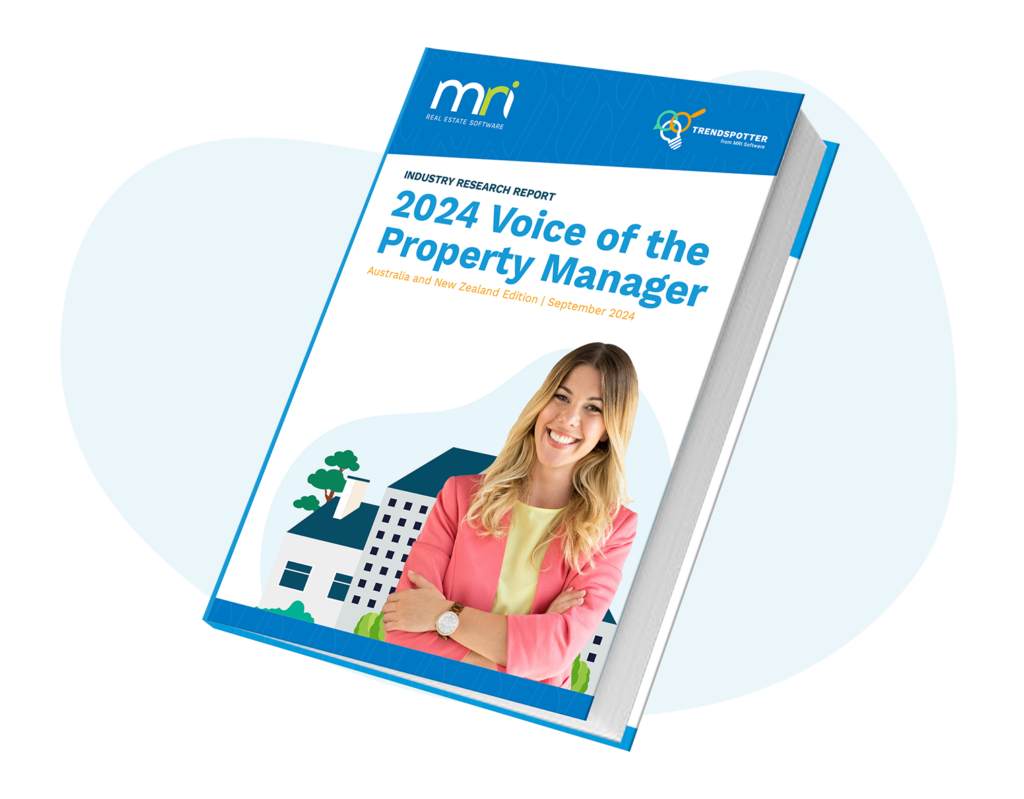Renter scams – How to prevent tenant fraud
As a property manager, there’s no question that you need systems in place which can help you stop renter scams before they happen.
After all, whoever originated the phrase “there’s no such thing as bad publicity,” clearly never saw their property associated with fraudulent activity.
It’s hurtful, embarrassing, and best avoided.
What is tenant fraud?
When a prospective renter completes an application for an apartment using false information (or with bad intentions), this is considered tenant fraud. It is a disastrous situation for any property manager trying to build up a good reputation and boost tenant retention.
Who is liable for renter scams?
The property leasing office is responsible for evaluating the application and determining if the information is valid.
Insufficient screening processes can result in fraudulent residents living in an apartment community for free, or on someone else’s expense.
Anyone offering a property for lease needs to be aware of housing scams targeting property owners.
The consequences of rental scams targeting landlords
Fraud occurs across many industries, and real estate is no exception.
The majority of property managers become aware of tenant fraudsters in their community within the first six months after the resident moves in, and they’ve already missed out on a valuable source of income. What’s worse? Addressing the situation can lead to:
- messy evictions
- legal disputes
- tenant dissatisfaction
- damaged relationships
So, if you want to continue to run a thriving property business, it’s crucial to understand how malicious tenants can sneak their way into your properties.
13 “red flags” of rental scams targeting landlords
Forged documents, missing information, and identity theft are key pathways that renter scam artists can use to get into your properties. While some of these vulnerabilities may seem like relatively small access points, they can lead to disastrous effects: renters have lost over $300,000 due to rental scams. Are you one of them?
Renter scam 1: Fake documentation
Fake documents are a common tactic used in tenant scams as part of the apartment application process, particularly regarding payslips. “Fake payslip for apartment” is such a high-volume search term that it shows up in Google’s Autofill feature.
While some fake documents might fall on the “unbelievable” side of forgeries, others are quite convincing and reasonably difficult to detect, meaning you have to remain on the lookout. Sometimes, tenants might claim they have a recent credit score you can use for their application. You should refuse and do your own research.
Renter scam 2: False identities
In recent years, the application process for real estate properties has largely moved online. Tenant fraudsters have come to take advantage of this. Alongside submitting fake documents (or digitally manipulated ones), they’ve been able to create entire false identities.
Without the proper systems in place to conduct background checks, your property could end up with leases signed by non-existent residents. To avoid this, hold yourself to a high standard and refuse to cut corners when it comes to conducting background checks. Secure the future livelihood of your business by being careful with the platforms you use to research information.
Renter scam 3: Information theft
In some cases, the details you’ve been provided check out. That doesn’t mean something dodgy isn’t going on. The profile your potential tenant uses could be built from data they’ve stolen elsewhere.
In some instances, tenant fraudsters have legally changed their name in order to sell your property to someone else and then disappear with the money. Other examples include:
- using someone else’s identity to build credit
- pretending to be someone else for a background check
- the submission of documents owned by another person
Renter scam 4: Consistent avoidance
Even face-to-face interactions with applicants could be fraudulent, and there have been many times when property managers and landlords alike have fallen prey to the trusty old “my friend will meet you” and “my assistant can pick up the keys.”
These prospective tenants make it seem like they are unable to meet you in person because they are overseas, or ill.
Although not every such instance is enough to set alarm bells ringing (sometimes, a person will genuinely be telling the truth), be conscious when a renter is avoiding meeting you personally or is claiming to be making an application for someone else.
Renter scam 5: Time-pressure
Another less common, but equally troubling tenant scam, is when the applicant tries to make you feel guilty about not processing their application fast enough.
In these cases, they might claim they have children they need to house or are currently homeless and need to move in within a manner of days. Then, they might persuade you to review their documents after they’ve got the keys.
Look out for key phrases such as, “I haven’t got them ready yet! They’ll come through next week after we’ve moved in.” If you feel that someone is extorting you to move quickly, then stay alert. They might have bad intentions.
Renter scam 6: Biased background checks
Be wary when only family and friend references are provided. The people you speak to might have been educated on what to say and when to back up the claims of your tenant.
Additionally, loved ones might also be biased in their opinions, and more interested in helping your applicant secure a rental property than in keeping you safe. If this happens to you, push for professional references.
Renter scam 7: Incorrect contact details provided
In the same vein of rental scams targeting landlords, the contact details you receive from tenants might not necessarily be for the right people. For example, if you want to speak to a past property manager of theirs, they can lie and give you the details of a friend who can pretend to be someone they’re not.
Thankfully, in today’s digital environments, it’s easy enough to cross-reference the number you’ve been provided and make sure it is owned by the person you want to speak to. Most businesses will have a contact number on their website.
Renter scam 8: Inaccurate tenancy reports
Another little detail that might alert you of possible tenant fraud is a small white lie that can be hard to distinguish, telling you the wrong number of people that will be moving in with them. This might be done to comply with the landlord’s occupancy limitations that are outlined in the lease agreement, but it could allude to something more illegal going on.
Stay alert.
Renter scam 9: International transfers
Where possible, always get your deposit and first rent payment paid upfront – shortly after the application is signed, but long before you hand over the keys. Wire transfers are dangerous territory and are often at risk of fraudulent activity.
Overseas tenants usually send a certified cheque that amounts to more than what is needed and then request a refund of the difference. However, after this has been sent, the cheque bounces and the property manager loses out. If you are dealing with international tenants, choose an ASIC-regulated payment platform like Wise.
Renter scam 10: Purposeful rental eviction
Now that we’ve covered some common tenant scams that occur while an application is made, you also need to be wary of issues that can arise after someone has moved into a property. This includes a refusal to pay rent or a deliberate breaking of your lease agreement so they can live rent-free until the eviction notice has been served.
It’s a nightmare situation for any landlord, and you need to recognise the signs early on.
Renter scam 11: Incorrect purpose
Residential and commercial buildings have different legal obligations. However, throughout the pandemic, there’s been a rise in small business owners who might use their leased apartments to ship and package goods. A surplus of waste might suggest that someone is using your property for something other than their living quarters. In this case, it’s a good idea for landlords to understand the type of business their tenants are running on the property.
Renter scam 12: Selling your furniture
Some tenants might seem great on the surface. Then you notice your furniture has been listed online for them to make a quick buck.
Goodbye washing machine. Goodbye sofa. Goodbye antique bedframe.
This is a nuisance and an expensive loss to property managers at best, and a scam at worst – especially if they manage to make a profit on the rent you’ve charged and then quickly move out.
Renter scam 13: Stealing your listing
Not only is your furniture at risk of rental scams targeting landlords, but your whole building could be, too.
Some tenants might pretend they own the property they live in and sell it on the private market.
Although it would legally remain yours, this is a bad situation to be in – and could result in legal action that is time-consuming and costly. Court proceedings might occur even if you are totally innocent.
How to prevent tenant fraud in 2022
Fraudulent and malicious rental activity is getting harder and harder to recognize. You can’t do it alone.
Step 1: Educate stakeholders
Awareness is crucial to stopping fraud before it happens. Ensure you:
- Teach your staff members about the risks and inform them of the “red flags”.
- Speak to your long-term (trustworthy) tenants about what to look out for.
- Have concrete communication channels in place for feedback.
If you have any reason for doubt, don’t proceed with the application process. It’s not worth the risk.
Step 2. Conduct tenant background checks
Once you’ve made sure that people know what to look out for, make sure to always be thorough with your tenant research. Look into instances such as:
- Duplicate addresses: Some fraudulent applications may have the same address used on multiple applications.
- Questionable personal information: If a fraudster has used a burner phone number on his or her application, this check will reveal any discrepancies between the number and the affiliated carrier.
- Multiple credit card uses: If the same credit card has been used on multiple rental applications, and by multiple people, this is a red flag that warrants further investigation.
- Written references: Always call someone to confirm they have written the reference provided, and done so recently.
You should also use your own platforms to browse credit scores and address history, and never accept someone’s claims at face value.
Ask for evidence, look for discrepancies, and speak to other property managers in your area to see if they’ve recognised any dodgy applications.
Step 3. Use SaaS to combat renter scams
The world is changing. It’s time to update your property management and tenant onboarding process.
With the number of digital applications on the rise, you should start wielding technology to your advantage. Services that can help you discern fake documents from real ones and conduct detailed tenant checks include MRI’s property management software and connected partner applications.
Preventing tenant fraud – FAQs
Between 2016 and 2018, over 97% of property managers have experienced fraud in some capacity. To avoid becoming another negative statistic, you need to be careful with how you approach sourcing and vetting potential tenants. These FAQs might help.
Voice of Property Manager Report – 2024 ANZ Edition
Discover the key issues that matter to Property Managers, which impact their profession, workplaces and each other.

Avoid tenant scams with MRI Software
No matter what action you take to defend your property against fraud, it’s vitally important that you make sure your solutions are reasonable.
Recognising renter scams before they happen is crucial to the reputation and upkeep of your properties, but overly cumbersome processes can also plummet satisfaction lower amongst renters who are following the rules.
At MRI Software, empowering property managers and other real estate businesses is at the core of what we do.
To help identify rental fraud, MRI offers a range of resident and tenant screening products through its Partner Connect network and helps you keep fraud out of your residential properties.
Protect yourself from costly rental mistakes. Find out more about our property management software solutions. Contact us today on 1300 657 700.
Be100 elevates tenant experience and gains efficiencies with RentPay and MRI Software
Be100 is a Sydney-based real estate agency involved in residential and commercial sales, property management and property developments. Business Challenge Be100 has been using the MRI Property Tree property management software since 2022 and was loo…

